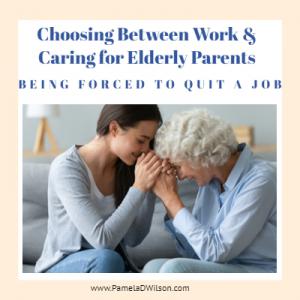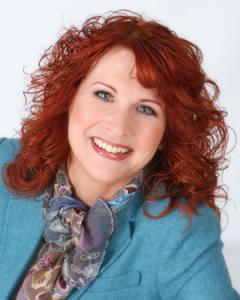Changing the Future of Family Caregiving
What elderly parents don’t tell their children results in unexpected situations drawing children into caregiving roles with no preparation or little warning.
GOLDEN, CO, USA, February 19, 2021 /EINPresswire.com/ -- The phone rings and children find themselves flying across the country or taking time off work to devote significant amounts of time to the care of elderly parents. While children may be aware that mom and dad see physicians for conditions like heart disease or diabetes, until health conditions become unmanageable, children remain oblivious to the amount of time one parent devotes to the other's care.
Not knowing the daily care situation is particularly true for an elderly parent caring for a spouse with Alzheimer’s or dementia. Early in the diagnosis, the amount of care needed may be minimal. As memory loss advances, individuals become totally dependent on the caregiver for all daily needs and decision-making.
Elderly parents may feel the need to shelter their children from the extent of care provided to protect a spouse's dignity or bolster the appearance of independence. Eventually, an event causes this house of cards to tumble down and require help from adult children.
What Parents Don’t Tell Their Children About Caregiving
The time devoted to care for elderly parents is a shock for adult children with busy lives and careers. Children who live near parents may help with simple tasks like grocery shopping or picking up prescriptions. When parents omit discussions about health diagnosis or doctor visits, children have no idea that their parents may be experiencing severe health concerns waiting to erupt into major disasters.
It’s the 3 am phone call about a heart attack, a fall down the stairs, or a stroke that serves as the wake-up call for children that their parent's lives have changed forever. An unexpected diagnosis like Alzheimer’s or dementia can result in a similar reality check that a parent's health is changing.
Parents May Not Want to Ask For Help
While children may not be initially involved in health issues that seem to be manageable, caregiving places significant stress on the parent caregiver's health. Because parents may not want to ask for help, situations can advance to parents feeling burned out and exhausted.
Children in regular contact with parents may not notice the changes in health or mental or physical abilities because of familiarity. In contrast, a child who lives out of town may visit and be alarmed at the significant declines in the health and well-being of parents. When this happens, there can be a tendency to swoop in and rescue parents from their inactions.
Elderly parents may resist being told what to do by their children, who appear to be interfering with their lives. This tug of war may result in children backing off to allow parents to continue to manage their lives. Time passes. Another emergency happens. Children are pulled into discussions with doctors and other healthcare professionals.
Adult Children Don’t Know What They Don’t Know
Most adult children are out of their element when trying to help manage care for elderly parents. Brothers or sisters working in the healthcare system may be the go-to person for family members and still lack knowledge about navigating care. When mistakes are made, children may feel that they should have known better.
Being a caregiver for elderly parents is unknown territory. It’s impossible to know how to navigate health insurance, medical diagnoses, prescription drugs, medical tests, conversations with doctors, and all of the other things that drop into the realm of responsibility for caregivers. Additionally, if elderly parents are not forthcoming with information, the challenges of making errors increases.
Caregivers Breakdown
Families rarely initiate discussions about care responsibilities because caregiving is viewed as a family duty and responsibility that is not negotiable. The issue is that the primary caregiver, whether a wife, husband, daughter, or son—cannot carry the responsibility alone forever without risk to health and well-being.
What eventually happens is a failure to provide care resulting from illness or burnout, placing the parent or family member who needs care at risk. Because situations seem to be under control, little attention is paid to the caregiver’s needs by other family members until the caregiver can no longer be the caregiver.
At that point, family disagreements about who will step in or placing a parent in a care community may happen. Caregiving is a responsibility shifted to the most available family member or to the person in the family willing to give up their life to care.
Family Caregivers Experience Long Term Effects From Caregiving Responsibilities
The downside is that this individual may be affected by caregiving responsibilities for a lifetime. Delaying college, turning down career advancement, giving up a job to care for a parent full time all have long-lasting effects that no one in the family is comfortable discussing. Good intentions pave a path for future struggles for many caregivers who are financially unable to support themselves or become ill and need care themselves.
If elderly parents told their children about caregiving—children may approach the caregiving experience differently. Many elderly parents who were in care situations for their parents (their children’s grandparents) somehow sheltered their children from this experience.
When caregiving is passed down from generation to generation with little thought of the long-term effects, future generations suffer the same level of stress and feelings of helplessness as previous generations. Only by talking about caregiving in families before the need arises and becoming more educated can we change the future of care for ourselves and our loved ones.
Unique Education For Groups and Corporations
Wilson’s mission to reach one million caregivers worldwide is supported by her passion to work with groups and corporations in providing keynote speaking sessions and unique education programs. Wilson participates in live events and creates dedicated webinars, courses, and programs that meet information requests by groups and corporations. Contact Wilson for more information by calling 303-810-1816 or by email to Inquiry_For_Pamela@PamelaDWilson.com
P Dombrowski-Wilson
Pamela D. Wilson, Inc.
+1 303-810-1816
email us here
Visit us on social media:
Facebook
Twitter
LinkedIn
How to Keep Going When Caregivers Feel Burned Out
Legal Disclaimer:
EIN Presswire provides this news content "as is" without warranty of any kind. We do not accept any responsibility or liability for the accuracy, content, images, videos, licenses, completeness, legality, or reliability of the information contained in this article. If you have any complaints or copyright issues related to this article, kindly contact the author above.



